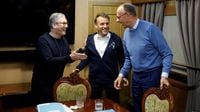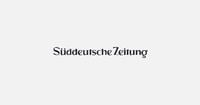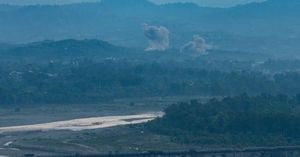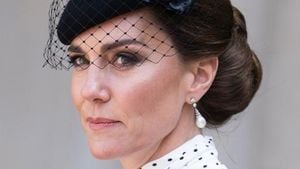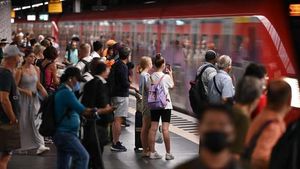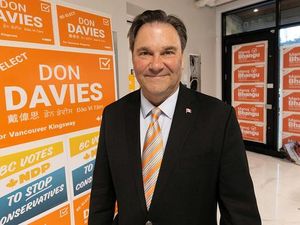The ongoing conflict in Ukraine continues to draw the attention of world leaders as diplomatic efforts intensify. Ukrainian President Volodymyr Zelenskyy has announced a meeting of the "Coalition of the Willing" in Ukraine, which aims to reinforce support for the nation amidst its ongoing struggle against Russian aggression. This summit is set to take place on Saturday, May 10, 2025, and will include prominent European leaders such as German Chancellor Friedrich Merz, French President Emmanuel Macron, and British Prime Minister Keir Starmer.
During a joint statement on their journey to Kyiv, the European leaders expressed their backing for a proposal by U.S. President Donald Trump, advocating for a complete and unconditional 30-day ceasefire. This ceasefire is intended to create a conducive environment for discussions aimed at achieving a just and lasting peace. The coalition has made it clear that territorial concessions to Russia are not an option, emphasizing that "Russia must end its illegal war of aggression, and Ukraine must be allowed to develop as a sovereign nation within its internationally recognized borders for future generations." They also assured Ukraine of ongoing military assistance to withstand what they termed as Russia's "barbaric and illegal invasion."
As part of these diplomatic maneuvers, Chancellor Merz has voiced optimism regarding the potential for a ceasefire agreement, stating, "We have great hope that we can achieve an agreement for a ceasefire in Ukraine." He also made it clear that pressure on Russia's military efforts would continue until a permanent ceasefire is agreed upon.
In a strategic shift, the new German government plans to keep weapon deliveries to Ukraine largely confidential, a move aimed at denying military advantages to Russia. This decision marks a significant change from the previous administration, which had maintained a high level of transparency regarding arms shipments. As part of this new approach, the government intends to adopt a strategy of "strategic ambiguity" in its communications concerning military support to Ukraine.
On the ground, the situation remains tense as Russia has been accused of violating a three-day ceasefire it declared. The Ukrainian military reported numerous attacks on Ukrainian towns during this period, claiming that Russia launched 220 assaults, including drone strikes and artillery bombardments. The Ukrainian domestic intelligence service (SBU) has also reported the discovery of a Hungarian spy ring operating within Ukraine, which has led to the expulsion of two Hungarian diplomats. This action was described as a response based on the principle of reciprocity and Ukraine's national interests.
In a related development, the European Union has pledged one billion euros from frozen Russian assets to support Ukrainian arms companies. This funding is intended to bolster Ukraine's defense capabilities as it continues to face Russian military aggression. EU foreign ministers, gathering in Lviv, viewed their meeting as a strong signal to Russian President Vladimir Putin, coinciding with Moscow's military parade commemorating the victory over Nazi Germany. The EU's chief diplomat, Kaja Kallas, reaffirmed that there would be no impunity for those responsible for the Russian invasion.
Amidst these diplomatic efforts, President Putin defended his military actions during a parade in Moscow, asserting that Russia remains an "insurmountable barrier" against fascism and other forms of extremism. His comments were met with skepticism from Western leaders who have consistently condemned Russia's actions as illegal and aggressive.
In the backdrop of these developments, the NATO alliance is also adjusting its military posture. NATO Secretary-General Mark Rutte has proposed that member states commit to spending five percent of their GDP on defense and security by 2032, reflecting a growing recognition of the need for enhanced military readiness in light of the ongoing conflict.
As the situation evolves, the international community watches closely. U.S. President Trump has expressed hopes that both Ukraine and Russia will agree to the proposed ceasefire, which is set to be discussed at the upcoming summit. However, he also warned that failure to adhere to the ceasefire could result in renewed sanctions against Russia.
In summary, as Ukraine continues to defend itself against Russian aggression, the international diplomatic landscape is shifting. The upcoming meeting of European leaders in Kyiv symbolizes a united front in support of Ukraine, while the proposed ceasefire aims to facilitate dialogue towards a peaceful resolution. Yet, the path to peace remains fraught with challenges, as both sides accuse each other of ceasefire violations, and the broader geopolitical implications of the conflict continue to unfold.
